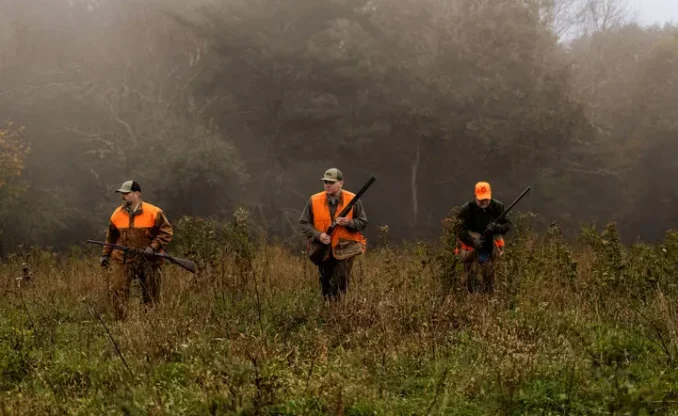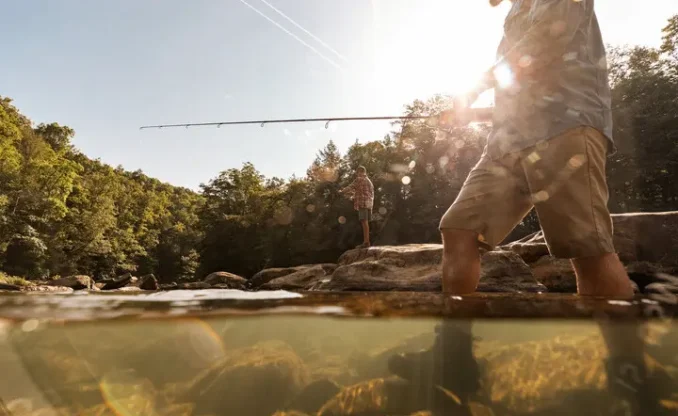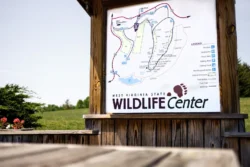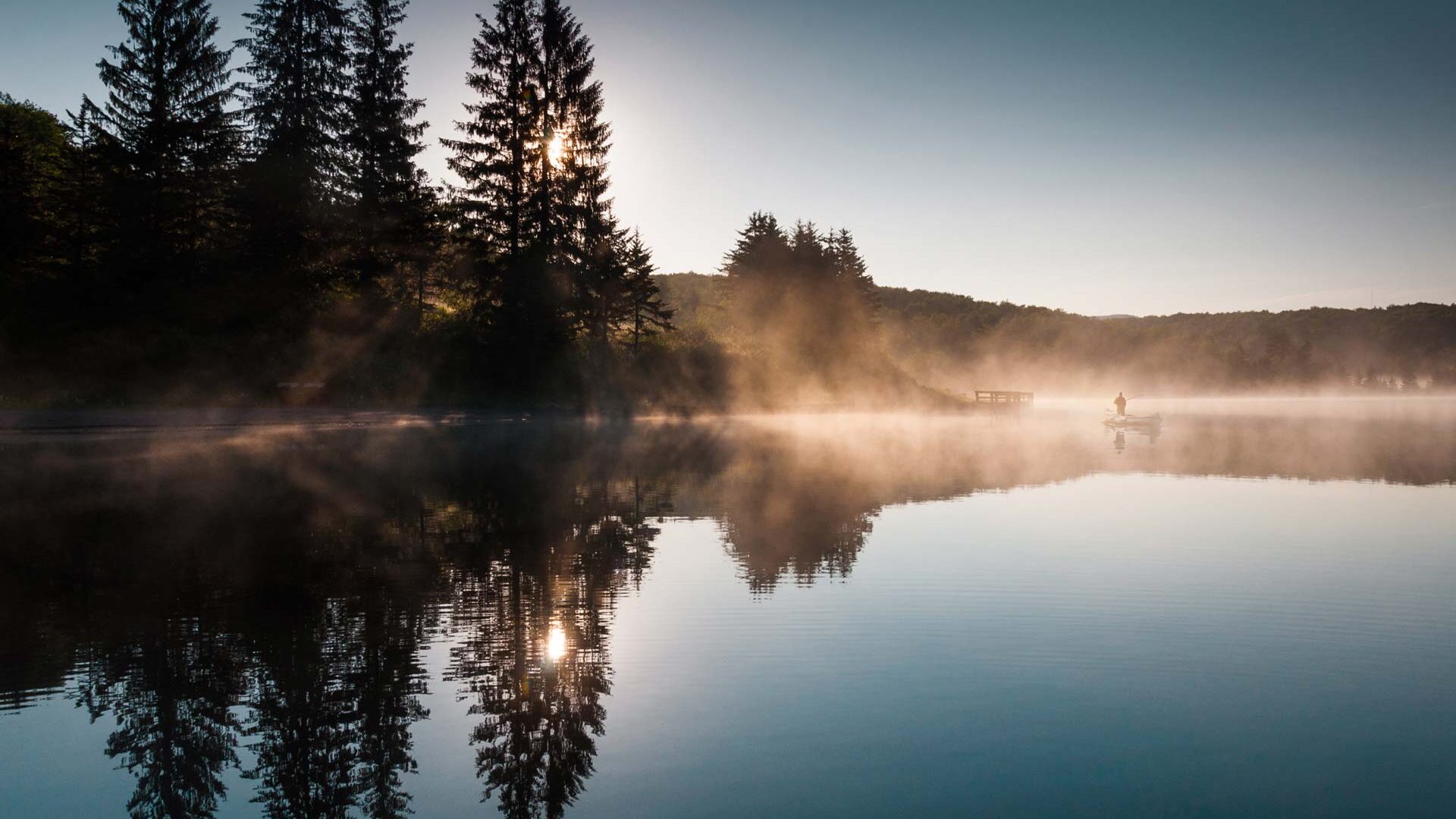Tips, best fishing spots and helpful reminders to get you ready for your spring fishing adventures in Almost Heaven, West Virginia.
Whether you’re a seasoned angler or new to the sport, May is a great time to go fishing in West Virginia. There’s no better time to experience all that West Virginia has to offer. So, if you want to try out a new hobby or switch up your fishing routine, let this guide help you plan your fishing adventure!
Don’t want to read the entire spring fishing guide? That’s OK. Here’s everything you need to know:
Late spring is a perfect time for a fishing adventure in West Virginia! Streams and lakes stocked with trout still have excellent numbers of trout to pursue, and warming waters mean that warm-water species, such as bass and sunfish, are more actively feeding in preparation for spawning. The month of May is the final month of trout stocking but trout can be found in many streams even into the summer. Don’t miss out on some prime spring fishing in the Mountain State!
Just remember to:
- Buy your fishing license and stamps at WVfish.com.
- Find your fishing spot at mapwv.gov/huntfish.
- Plan your fishing trip before it’s too late.
If you want a more in-depth guide for fishing in West Virginia, keep reading!
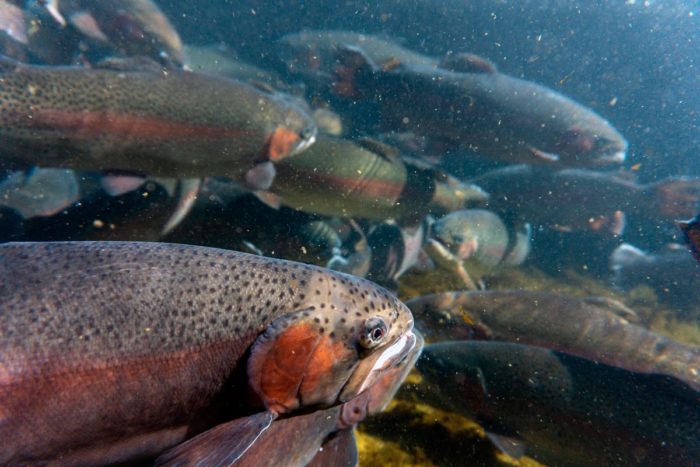
What Kind of Fish Can I Catch?
With more than 40,000 miles of streams, more than 100 public lakes and nearly 40 different kinds of sportfish, there’s no shortage of options when it comes to fishing in West Virginia. We understand if you feel a little overwhelmed by all the options. We feel that way too sometimes. Fishing should be relaxing and enjoyable, so don’t worry about finding the perfect spot or catching the biggest fish. Just enjoy yourself.
So, what kind of fish can you catch in West Virginia? Trout, bass, bluegill, catfish, sunfish, walleye, musky and other sport fish can all be found in the state’s lakes, rivers and streams. For more information about sportfish in West Virginia, check out our Sportfish Identification Guide. If you know what kind of fish you want to catch, use our interactive fishing map to search for waters where it can be found.
Do I Need Any Essential Fishing Gear?
Whether you’re a seasoned angler or a beginner, having the proper gear can make all the difference in your fishing experience. First, you’ll need a fishing rod and reel that is appropriate for the type of fishing you plan to do. For trout fishing, a fly rod or lightweight spinning rod and reel combo are great choices. If you’re heading to a lake to catch bass or other warm-water fish, a medium to heavy action rod paired with a baitcasting or spinning reel will do the trick.
In addition to your rod and reel, you’ll also need to bring along bait or lures, hooks and fishing line. When it comes to bait, live bait such as worms or minnows can be effective for catching a variety of fish. Alternatively, lures such as crankbaits, spinners and jigs can also be effective and they come in a wide range of colors and styles. Make sure you bring a variety of sizes and types to match the conditions and fish you are trying to catch. Don’t forget to check the weather forecast and pack appropriate clothing and accessories such as rain gear or sunscreen to ensure that your fishing trip is comfortable and enjoyable.

How Do I Find the Best Fishing Spots?
The quickest and easiest way to find a fishing spot is to ask a friend or family member who’s an avid angler to give you recommendations. Many state parks and forests have popular fishing streams and lakes that are perfect for anglers of any experience. You can also contact your local WVDNR District Office to speak with the fishery biologist or use our interactive fishing map to find a spot that fits your needs.
If you want a few recommendations, here are a few fishing streams and lakes we think you’ll enjoy this spring.
Cranberry River
Located in the Monongahela National Forest, Cranberry River is arguably West Virginia’s top trout stocked trout stream and known for its beautiful scenery and excellent trout fishing. The main stream is regularly stocked with rainbow, brown, golden rainbow, tiger, and brook trout, making it a great spot for both experienced and novice anglers. In addition to fishing, the area offers camping, hiking, and stunning scenery and native brook trout can be found in many of the small tributaries of the Cranberry River

Summersville Lake
Summersville Lake is the largest lake in West Virginia and a popular destination for bass fishing. The lake is home to both largemouth and smallmouth bass, as well as channel catfish, walleye, yellow perch, bluegill and crappie. The lake’s clear water and rocky shoreline make for some picturesque fishing too!.
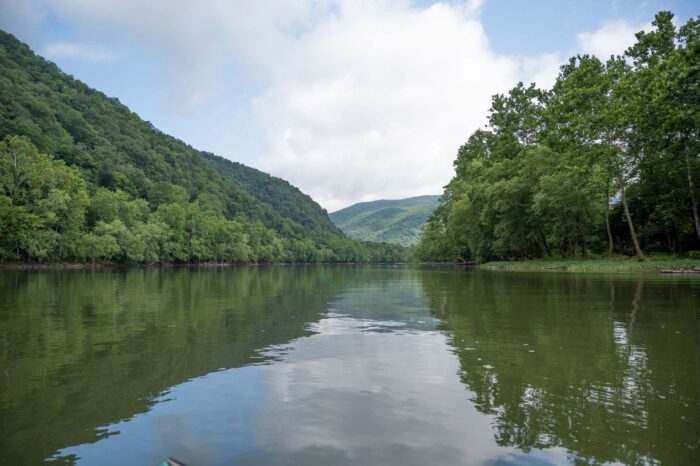
New River
The New River is the second oldest river in the world and while known for its white-water rafting, it’s also one of the nation’s best known destinations for trophy smallmouth, walleye, and musky fishing. The river is also home to flathead catfish and sunfish species. The New River Gorge is also home to some of the most beautiful scenery in West Virginia, making it a must-visit destination for any angler.
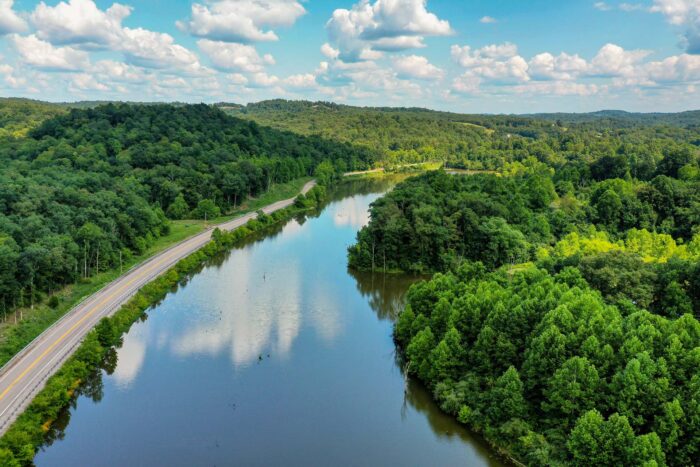
Elk Fork Lake and other small impoundments
West Virginia has many small impoundments such as Elk Fork Lake. These small lakes are found in most every county throughout the state and provide easy access for shore anglers. Some of West Virginia’s best largemouth bass fishing can be found in these small impoundments. The small lakes are home to largemouth bass, as well as channel catfish, crappie and bluegill. Many of these lakes are found in state parks or wildlife management areas where you can partake in other activities when you get tired of catching fish!
South and North Branches of the Potomac River
Both branches of the Potomac River are popular destinations for trout and smallmouth bass fishing in West Virginia. Sections of both branches are home to rainbow and brown trout, as well as smallmouth bass, channel catfish and sunfish. The rivers are also known for their scenic beauty, with stunning mountain views and easy access points for fishing.
It’s also worth noting that West Virginia has reciprocal fishing agreements with Ohio, Maryland and Kentucky. These agreements allow you to fish in certain waters without purchasing an additional license. For example, West Virginia anglers can fish on the Ohio, Potomac, Big Sandy and Tug Fork rivers with just their West Virginia fishing license. For more information about these agreements, check page 9 in the West Virginia Fishing Regulations Summary.

